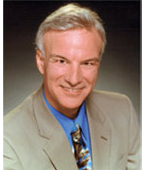
Host: Anti-Aging Psychologist Dr. Michael Brickey
Guest: Dr. Neil Fiore
Broadcast and podcast on webtalkradio.net. The podcast is also on the links below
 The Mental and Emotional Skills for Dealing with Cancer and Life Threatening Diseases [ 52:01 ] Play Now | Play in Popup | Download
The Mental and Emotional Skills for Dealing with Cancer and Life Threatening Diseases [ 52:01 ] Play Now | Play in Popup | Download
Hopefully, you won’t experience cancer, heart disease, or other life threatening illnesses. Should it happen you need to be prepared. And sooner or later it will happen to someone close to you. There is lots of information on the physical part of these diseases, but what about how to take charge rather than be emotionally overwhelmed and devastated? Today’s guest, Dr. Neil Fiore is a forty year survivor of “terminal” cancer and author of Coping with the Emotional Impact of Cancer.
Dr. Fiore gives us a formula for coping with life threatening illnesses. The individual pieces aren’t unique but putting them all together is. The formula starts with taking charge, asking lots of questions, and you choosing the hospital, the doctor, and the treatments. The formula calls for getting the feelings out, whether by talking to friends, family, healthcare workers, or therapists, writing it down, or singing or screaming. As you are getting the feelings out, it is important to ask good questions. Why and philosophical questions like why me, how could God do this to me? are counterproductive. Rather, you want questions like, How can I grow more white blood cells? What nutrition would be best for me now?
I love the movie Waiting to Exhale, which is the way cancer patients often feel. Dr. Fiore’s formula includes taking charge of anxiety, which can be stopped in seconds just by taking a deep breath, tightening muscles, and exhaling. This simple skill you can help you the rest of your life. Rather than fighting cancer being like 12 rounds in a Rocky movie, Dr. Fiore suggests trusting your body to do what it knows how to do—or as he puts it, You don’t have to tell a killer T-cell what to do. From there it is one step at a time—what do I need to do now.
Dr. Fiore and I are both very big on the role of beliefs, questions, and metaphors. The one slight divergence I have with him is that just getting feelings out can result in spinning your wheels if it isn’t soon paired with making sure you are asking helpful questions instead of negative or philosophical questions. I agree that you don’t have to figure them out, you just need to get them out.
I have seen a lot of patients, however, rant and rave only to get stuck there. That’s where counseling or psychotherapy can be especially helpful. He makes an interesting point that patients may be more comfortable seeing cancer as a physical disease and not a psychological problem. While it starts as a physical disease and is primarily a physical disease, it ends up being a huge psychological challenge as well. Fortunately, people are becoming much more accepting of psychological help. My experience is that most people with life threatening illnesses in hospitals and nursing homes are happy to talk with anyone who can help. The boredom, time on their hands, fear, and short time that they often get to talk with other professionals conspires to make them even more receptive.
Finally, I would underscore that the same principles we talked about with cancer apply to other life threatening illness as well. If you want to hear how a leading cardiologist and cardiac psychologist approach heart disease, give a listen to the show with Dr. Joel Okner and Dr. Jeremy Clorfene that is archived on AgelessLifestyles.com. The centered their approach on starting with dealing with stress, then address diet, exercise, and other lifestyle issues.
Dr. Fiore’s website is www.NeilFiore.com. Dr. Brickey’s other websites are www.DrBrickey.com and www.Anti-Aging-Speaker.com.

















